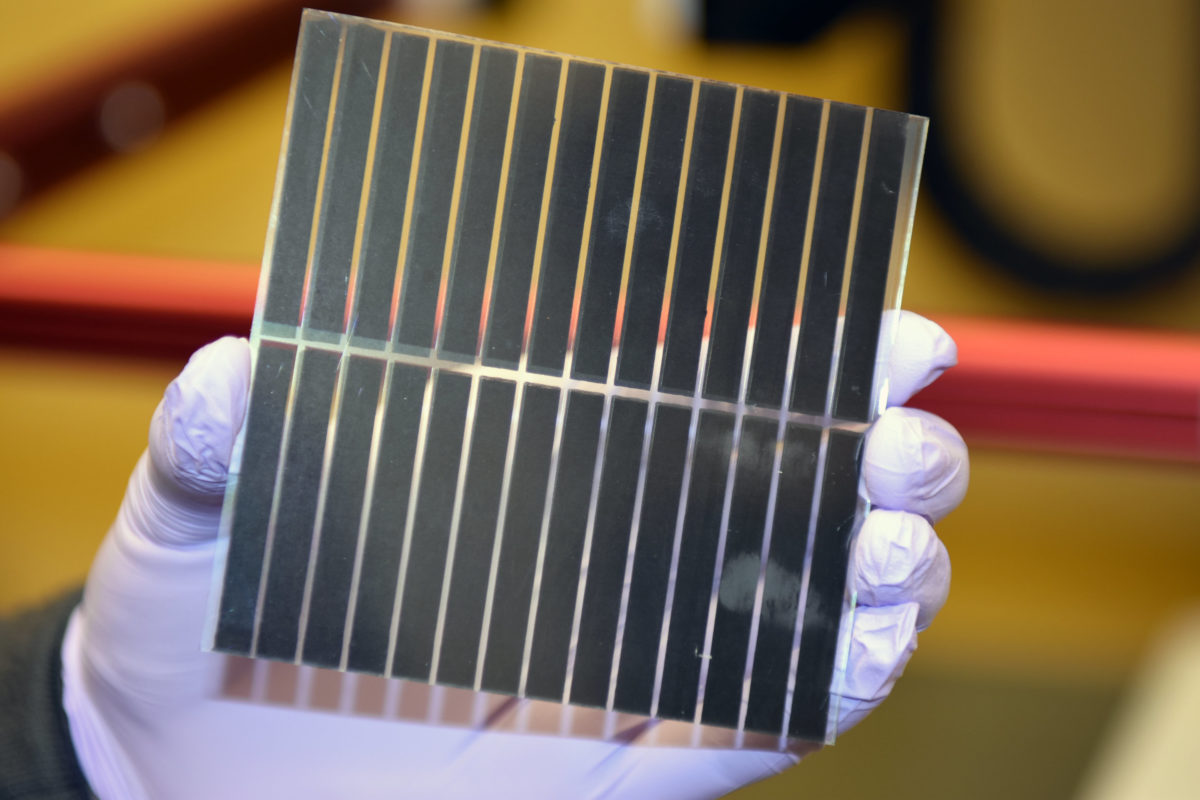Most of the impressive efficiency results recorded by solar cells using perovskite materials have been achieved using organic perovskites, or a combination of organic & inorganic compounds.
While many are still excited by the low cost / high efficiency potential of such materials, mitigating the material’s sensitivity to light, heat and moisture remains a barrier to the technology’s development, preventing the creation of products with the 20-year plus guarantees the solar industry has become used to.
Though wholly inorganic perovskites have not so far been developed with the high conversion efficiencies achieved using organic substances, they could prove less sensitive to heat, making it easier to create a stable solar cell.
Now, scientists at OIST have developed an inorganic perovskite solar cell, which initially achieved 6.14% conversion efficiency. Interestingly, the team found that when this cell was doped with manganese, the efficiency increased to 7.36%.
The cells, described in the paper ‘Enhancing Optical, Electronic, Crystalline, and Morphological Properties of Cesium Lead Halide by Mn Substitution for High‐Stability All‐Inorganic Perovskite Solar Cells with Carbon Electrodes’, published in the journal, Advanced Energy Materials, also utilized carbon electrodes printed directly onto the cells – an innovation the researchers say could greatly reduce production and material costs.
The cells maintained 93% of their initial efficiency after 300 hours testing in an ambient environment. While far from the levels of reliability required in commercial production, where customers expect guaranteed performance for 20 years or more, OIST says that the results are encouraging for inorganic perovskite solar, and for low-cost, high efficiency cell concepts.
The team from OIST says it will now focus on further improvements to the cells efficiency and durability, as well developing scalable processes for commercial production.
This content is protected by copyright and may not be reused. If you want to cooperate with us and would like to reuse some of our content, please contact: editors@pv-magazine.com.




By submitting this form you agree to pv magazine using your data for the purposes of publishing your comment.
Your personal data will only be disclosed or otherwise transmitted to third parties for the purposes of spam filtering or if this is necessary for technical maintenance of the website. Any other transfer to third parties will not take place unless this is justified on the basis of applicable data protection regulations or if pv magazine is legally obliged to do so.
You may revoke this consent at any time with effect for the future, in which case your personal data will be deleted immediately. Otherwise, your data will be deleted if pv magazine has processed your request or the purpose of data storage is fulfilled.
Further information on data privacy can be found in our Data Protection Policy.